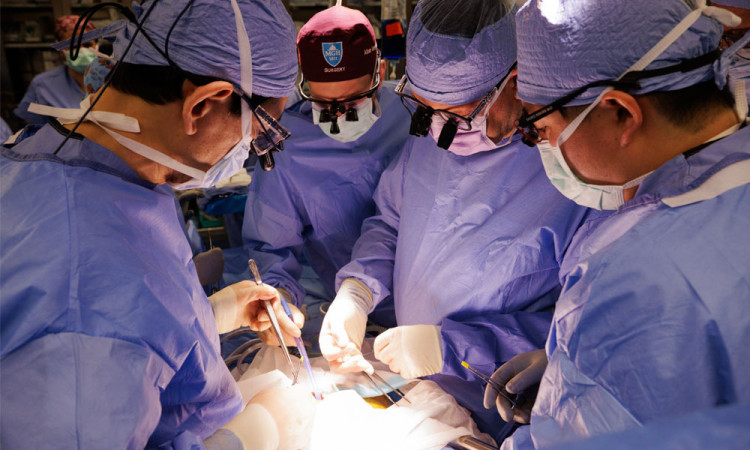A Massachusetts man suffering from end-stage kidney disease has become the second living person to receive a genetically modified pig kidney transplant, marking a major milestone in the field of xenotransplantation. The surgery, performed at Massachusetts General Hospital on January 25, is part of a three-patient study testing the viability of pig kidneys as an alternative source of donor organs.
The patient, 66-year-old Tim Andrews, had been on dialysis for nearly two years, facing limited prospects of receiving a human kidney due to his Type-O blood, which significantly reduces donor compatibility. "It really becomes very, very depressing that this is it, you know?" Andrews said in an interview provided by the hospital. "This is how I'm going to end my life."
His outlook changed when doctors offered him the chance to participate in an experimental procedure using a pig kidney developed by Cambridge-based biotech company eGenesis. "All of a sudden, I'm not in the darkness. I'm going to get better," Andrews recalled.
The transplant was conducted under the U.S. Food and Drug Administration's Expanded Access pathway, which permits the use of investigational medical products for patients with life-threatening conditions. Dr. Leonardo Riella, medical director for kidney transplantation at Massachusetts General Hospital, said in a statement, "Our three-patient study this year will provide critical insights into the long-term viability of xenotransplants as a transformative solution for thousands of patients in need of a life-saving kidney."
Xenotransplantation, the process of transplanting animal organs into humans, has advanced rapidly due to breakthroughs in genetic editing. Using CRISPR technology, scientists have modified pig DNA to address risks of organ rejection, size mismatch, and potential transmission of pig retroviruses. The eGenesis kidney transplanted into Andrews contained over 60 genetic edits, one of the most complex modifications seen in the field to date.
Other companies are also pursuing clinical trials in the xenotransplant space. United Therapeutics recently received FDA approval for a six-patient trial using pig kidneys with 10 genetic edits, expected to begin in mid-2025. Dewey Steadman, a spokesperson for United Therapeutics, stated that pig kidney transplants could become a standard treatment option by the end of the decade.
"The whole field has been working towards this moment of clarity and the ability to go into patients," said Mike Curtis, CEO of eGenesis. "It creates a very clear path for us to bring this technology to more patients."
Despite past challenges in xenotransplantation, recent cases suggest a promising future. The longest-living recipient of a pig kidney, 53-year-old Towana Looney, has now survived over 70 days with an organ developed by United Therapeutics. "Once we're past that 90-day mark, we can actually say that the xenograft has helped a patient achieve a similar survival benefit as what we have seen in human transplant," said Dr. Jayme Locke, a transplant surgeon at NYU Langone Health.
Andrews was discharged from the hospital just one week after his procedure and remains under close monitoring. "As soon as I woke up after the surgery, the cloud of dialysis disappeared," he said in a statement from eGenesis. "I felt re-energized and revitalized. It was a miracle."
He is now required to visit the clinic three times a week for blood tests and uses remote monitoring devices to track his vitals. Like traditional transplant recipients, he will need lifelong immunosuppressive medication to prevent organ rejection.
His case represents a potential breakthrough for kidney failure patients. In the U.S., over 800,000 people suffer from end-stage kidney disease, yet only around 25,000 kidney transplants are performed annually. "We have wait-listed typically between 80,000 and 100,000 [patients]," said Locke. "So when you start backing it up, you realize the magnitude of what this offers."
For Andrews, the procedure represents more than just an extension of his own life. "This transplant isn't about me," he said. "It's about all the people who I met at the dialysis clinic, and I saw what they were going through."






